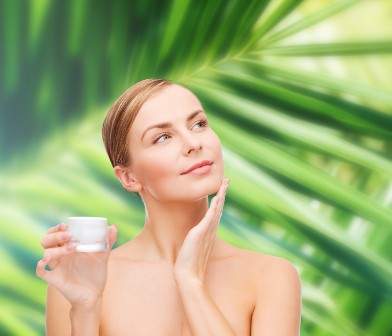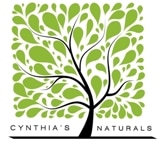Articles
What Goes Into Skin Care Products ?
The market in beauty products has grown significantly in the last 25 years but in the last 10 years there has been an increasing interest in the ingredients contained within the lotions, creams and potions we apply so liberally to our skin – the largest organ of our human bodies.
Many main stream manufacturers still include a range of not so natural ingredients in their products:
Many of these ingredients are given scientific sounding names. While the cynic may say, this is a deliberate attempt to confuse the consumer, a more charitable view is that this is done in pursuit of accurate labeling.
As a result of the heightened awareness of health matters and the confusion concerning ingredients and labelling, a new sector of this lucrative market has arisen. The need for natural skin care and cosmetics.
But just how natural is natural?
Many consumers require natural ingredients but are not prepared to accept the necessary compromise in product performance. A classic example is with the ingredient Sodium Lauryl Sulphate. This is a synthetic detergent derived from coconut oil and it appears in a wide range of shampoos, bath products, toothpastes and liquid soaps. It is what gives these products the luxurious bubbles and lather to which we have all become accustomed. Several studies have suggested that this ingredient is harmful and many consumers now seek products containing an alternative.
Manufacturers then developed Sodium Laureth Sulphate, which is considered less irritating than Sodium Lauryl Sulphate. When this was condemned, Ammonium Laureth Sulphate and Ammonium Lauryl Sulphate were substituted. Once again these are synthetic detergents developed from coconut oil and they are still considered to be an irritant. Some studies have also suggested they may be carcinogenic.
Unless consumers have a knowledge of bio-chemistry it is almost impossible to discern what ingredients are natural and what are not. The SLS saga is but one example of this confusion. So the natural version of liquid soap is castile soap. I am sure just buying a soap made is easy for most product producers because they don’t want to create something th

at is time consuming. Yet if you just allow nature to cook your castile soap in a solar oven you can save a lot of energy and time.
It is ironic that a number of “natural” manufacturers aggressively promote their products by demeaning the products of competing companies – despite the fact that the ingredients they contain are essentially the same. Consumers need to make themselves aware of the real meanings behind the mysterious names on their cosmetic bottles and jars and educate themselves about the various aliases they are likely to encounter.
Depending on the reasons for wanting to purchase natural products, some ingredients may be more acceptable than others. Take Lanolin for example. Lanolin is extracted from the fleece of sheep. Depending where the Lanolin has been sourced, it has been shown to contain a large number of chemicals used to kill parasites that may live on the sheep. Many eczema sufferers find that treatment with lanolin based products – despite the chemicals – helps to reduce symptoms. The benefits of Lanolin treatment outweigh the disadvantage of potential contaminants. This is a value judgement that individuals will need to make.
Many consumers are now seeking vegan skin care which has no animal products majority of carrier oils are plant based so this should be an easy find for vegan friendly products. You only have to look out for Lanolin which is described above or tallow. It’s surprisingly interesting how many versions of the name tallow there is. Eg tallowate. You also have to look out for mineral oil which is petroleum derived product.
Also many people are looking for organic ingredients. Now this is an interesting topic and I have say one that pushes my buttons. I use a lot organic ingredients in the production of our products but I don’t say they are organic. Yet if you have one ingredient in your product that is organic you can claim it’s an organic product. Now that opens a can of worms doesn’t ?
Of course, one of the best ways to ensure that your products are natural is to learn about ingredients. You can google any ingredient and find information about it. A lot of companies use the scientific name on their labelling, but you can still research it. Really you as a consumer should educate yourself on ingredients. Some companies have brilliant marketing on their products and make all sorts of claims. One such product I researched turned out the only ingredient was Argan Oil, the marketing on this product was so good I was tempted to buy it myself but then it got the better of me and I was curious about the ingredients and it turned out to be just Argan Oil.
 Remember what we put on our skin soaks into our blood stream. A great example is that a woman that wears make-up everyday can add up to kilo of chemicals into her system a year unless of course it is natural.
Remember what we put on our skin soaks into our blood stream. A great example is that a woman that wears make-up everyday can add up to kilo of chemicals into her system a year unless of course it is natural.
Here at Cynthia’s naturals we don’t use the scientific ingredient name we just use the normal layman’s name of the ingredient so that when you read the ingredients you know what you’re putting on your skin. It’s interesting though some names of ingredients for example cetyl alcohol you would think it has alcohol in it, but it doesn’t it’s just a thickener and its vegetable derived.
In formulating products, it has certainly been an eye opener to myself about ingredients in products and realising that all the products I have purchased through out my life I have bought because the packaging was nice it smelt nice and they had a great marketing campaign for it.
Now I only use the best of everything in the formulation of products here at Cynthia’s Naturals because really that’s what we deserve.
